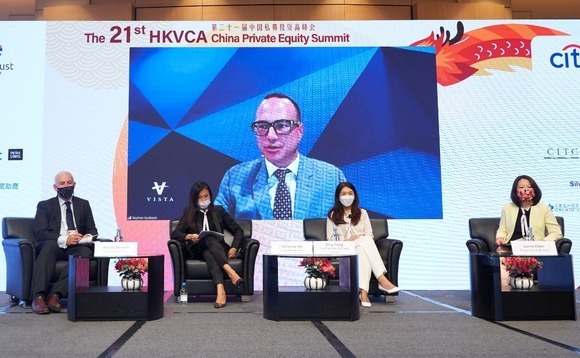
Investors call on Hong Kong to prioritise talent retention, innovation

Hong Kong must deploy a series of initiatives around talent retention and the fostering of innovation if it is to remain competitive as a financial hub within Asia, the Hong Kong Venture Capital & Private Equity Association’s (HKVCA) China forum heard.
"If you think about Hong Kong's core objectives, one is to be a financial hub. What does that look like in the future? You need to be a leader in financial technology and a leader in innovation; you can't just have old banking services," said Stephen Seelbach, a managing director at Vista Equity Partners. "Hong Kong must foster the virtuous cycle of entrepreneurship and innovation."
Vista, a specialist investor in enterprise software, data, and technology companies with more than USD 96bn in assets under management (AUM), recently established its Asia headquarters in Hong Kong, driven in part by the importance of proximity to China. However, industry participants believe the territory must do more than rely on this innate advantage.
"I am bullish on Hong Kong's potential, but we cannot rest on our laurels and rely on natural advantages of being one step from mainland China and having the GBA [Greater Bay Area] in our back yard," said Amy Fong, COO of China-focused FountainVest Partners. "We need to look forward and be competitive, proactively looking at what other jurisdictions are doing."
FountainVest is headquartered in Hong Kong and finds the territory a useful base of operations, especially when investing in overseas companies that have scope for growth in China. It recently moved into a larger office. Similarly, The Carlyle Group is moving into larger premises and Wayne Bannon, the firm's general counsel for Asia, said Hong Kong would remain the regional headquarters.
However, Bannon stressed the importance of talent retention, acknowledging how Hong Kong has built an ecosystem of highly professional executives over the past three decades through a combination of employment opportunities and attractive lifestyles. "Retaining people is the key for companies in Hong Kong," he noted.
Singapore has aspirations to become a more significant hub for private equity in Asia, rolling out various incentives to attract fund managers and family offices. Lorna Chen, Asia regional managing partner at Shearman & Sterling, noted that her firm has been asked by many clients to conduct comparative studies on fund regimes, fund structures, and tax policies over the past 12-18 months.
Hong Kong has also taken steps to strengthen its position regarding private equity. Bannon highlighted measures such as the locally incorporated funds regime, a special purpose acquisition company (SPAC) framework, and the Hong Kong Growth Portfolio (HKGP), which is a 10% allocation within the territory's Future Fund for investments that support the local economy.
The Future Fund was established in 2016 to invest budget surpluses to cover future liabilities arising from an ageing population and slower economic growth. Earlier this year, the government has announced that the HKGP would establish a HKD 5bn (USD 640m) strategic technology fund to make direct investments that underpin Hong Kong's status as a hub for finance, commerce, and innovation.
Seelbach praised the HKGP initiative as "a great idea that should be bigger in the future," but he sees it as just one part of what should be a wide-ranging effort to promote new economy opportunities and digitalise traditional industries.
He advocated more funding for programmes that cultivate talent in computer science and software development, increased support for local incubators, and visa programmes to encourage founders to launch start-ups in Hong Kong. In addition, the government should create a wider customer base for these nascent companies by encouraging software adoption among local companies.
"Hong Kong has an opportunity to identify sectors where it is globally competitive – like fintech, real estate, and shipping – and then create homegrown software solutions and then export them because Hong Kong companies know best how to manage these workflows. There is an opportunity to construct what could be industry-standard ERP [enterprise resource planning] software," he said.
As to the prospect of Hong Kong becoming globally competitive as a fund domicile, industry participants warned it will take time, given GPs and LPs are comfortable using established jurisdictions like the Cayman Islands and Luxembourg.
"Long term, use will pick up and it will be attractive, especially for capital coming in and out of China," Bannon said. He also suggested Hong Kong could play a meaningful role as a location for long-dated private equity funds for Asia-based assets, which typically sit one or two levels below the fund and don't have to be domiciled in the same location.
Latest News
Asian GPs slow implementation of ESG policies - survey
Asia-based private equity firms are assigning more dedicated resources to environment, social, and governance (ESG) programmes, but policy changes have slowed in the past 12 months, in part due to concerns raised internally and by LPs, according to a...
Singapore fintech start-up LXA gets $10m seed round
New Enterprise Associates (NEA) has led a USD 10m seed round for Singapore’s LXA, a financial technology start-up launched by a former Asia senior executive at The Blackstone Group.
India's InCred announces $60m round, claims unicorn status
Indian non-bank lender InCred Financial Services said it has received INR 5bn (USD 60m) at a valuation of at least USD 1bn from unnamed investors including “a global private equity fund.”
Insight leads $50m round for Australia's Roller
Insight Partners has led a USD 50m round for Australia’s Roller, a venue management software provider specializing in family fun parks.








